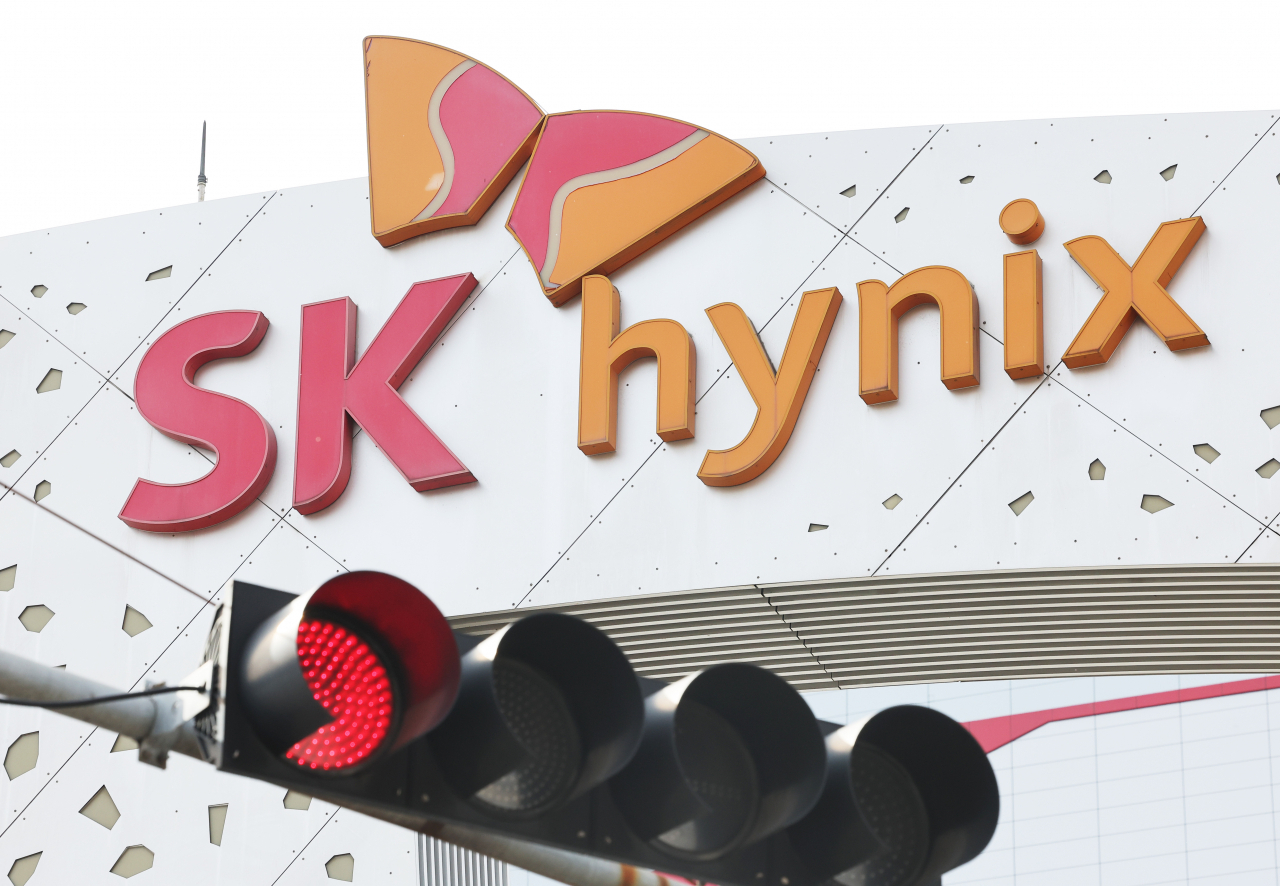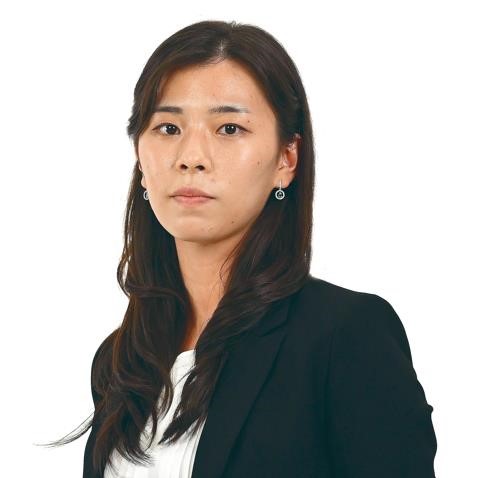Tech giants tighten belts amid uncertainties, bleak outlook
SK hynix operating profit plummets 60% in Q3 earnings shock, instantly scaling back facility investment
By Son Ji-hyoung, Kan Hyeong-woo, Lee Yoon-seoPublished : Oct. 26, 2022 - 15:57

South Korean electronics giants are bracing for uncertainties across the board, with some leading exporters mapping out belt-tightening plans to address the situation that some have described as grave as the 2008 global financial crisis.
Memory chip supplier SK hynix is one of the companies hit hardest by slowing consumer demand and the US-China tech arms race. The memory chip downcycle follows a pileup of order backlogs, and uncertainties are growing in its Chinese operations due to semiconductor-related export restrictions on China by the US.
Combined, the downside factors prompted SK hynix to cut its facility spending in half compared with the current level starting next year and to reduce output of its flagship DRAM and NAND flash products with less chip wafer input.
"(SK hynix) is cutting facility investment by 50 percent starting next year, to the degree that we did in times of the global financial crisis in 2008," Noh Jong-won, chief marketing officer at SK hynix, said on a conference call Wednesday. "The extraordinary level of inventory will force SK hynix to minimize investment in wafer capacity."
SK hynix logged an operating profit of 1.66 trillion won ($1.16 billion) in the third quarter, down 60 percent from the previous year, according to the preliminary earnings result Wednesday. The figure was a glaring 23 percent lower than the analyst consensus of 2.16 trillion won in profit estimated by Korean market intelligence FnGuide.
Its quarterly revenue came to 10.98 trillion won, down 7 percent from the previous year. The figure was also 8 percent lower than the FnGuide consensus.
Growing geopolitical concerns in the wake of a US export ban on China has also prompted SK hynix to rethink strategy, as the memory chip giant is seeking a technology migration to next-generation standards such as double data rate 5.
Noh told the earnings call that SK hynix might consider selling advanced chipmaking tools, if not fabrication plants, in its Chinese locations in Wuxi and Dalian in a worst-case scenario.
Deploying advanced chipmaking equipment to China, such as extreme ultraviolet photolithography machines that are deemed crucial for the 10-nanometer or more advanced processes to achieve SK hynix's next-generation standard production is becoming virtually impossible, he added.
"The restrictions are inevitably painful in many ways from our standpoint, as a chipmaking company that runs an operation in China," Noh said. "The noneconomic factors are pushing our business into an unknown territory where the common sense of concentrating manufacturing facilities on a certain region for the sake of price and efficiency may no longer work."
Such external risk factors are also dragging on other electronics firms in Asia's fourth-largest economy.
Samsung Electro-Mechanics, a mobile-to-automotive component supplier, also hinted at a reduced annual capital spending on facility compared to the previous year, and a scaled-down investment in the next year to come, during a conference call. The company saw a 32 percent drop in operating profit year-on-year to 311 billion won in the July-September period.
Flat-panel display manufacturer LG Display echoed the pessimism. Its CFO Kim Sung-hyun said Wednesday in an earnings call that the total capital expenditure this year will shrink by 1 trillion won from the earlier plan and its 2023 spending will amount to no greater than half of its annual depreciation cost. The world's sole OLED panel maker for TVs slid into the red in the third quarter with 759.3 billion won operating loss in preliminary results Wednesday. LG Display cited an "unprecedented fall in demand for TV panel" due to macroeconomic crises.
Korean battery suppliers for electric vehicles are also on tenterhooks, although companies like LG Energy Solution and Samsung SDI maintained a rosy outlook for now on the growing demand for lithium-ion battery products based on record third-quarter results.
Under the spotlight are the supply chain disruption and growing utility costs owing to Russia's invasion of Ukraine, as well as the looming introduction of the Inflation Reduction Act, a new US law that effectively severs Chinese ties in the electric vehicle supply chain.
LG Energy Solution, the nation's largest lithium-ion battery supplier by batteries used in cars, is bracing for changes, as details of the IRA will be outlined after the US midterm election in November.
LG Energy Solution executives told analysts that it would be ramping up partnership and localization efforts for raw materials procurement outside China, in countries such as Canada and Australia. This comes as US President Joe Biden's signing of the Inflation Reduction Act dictates that an electric vehicle sold in the US must have its components manufactured in the US and have the critical material used for the components supplied from the US or its free trade agreement partners.
"We have long been working to reduce Chinese elements in our business," Lee Chang-sil, chief financial officer and senior vice president of LG Energy Solution, said on a separate earnings call.
Moreover, LG's earlier plan to invest 1.7 trillion won in Arizona has been under reassessment. Inflation, the rising cost of construction and the potential upshot in demand after the new law comes into force could impact their decision, LG Energy Solution Vice President Choi Jae-yong said, adding it would take more time to finalize the contract.
Meanwhile, Russia's invasion of Ukraine has caused utility prices at LG's plant in Poland to go up, affecting the battery maker's lucrativeness.
"The increasing geopolitical risk has been on the rise, and so have electricity costs in Europe," LG Energy Solution Vice President Kim Gyung-hoon said. "It is true that LG's Poland operations has a higher utility cost burden compared to the previous year, and we are trying to minimize the downside effect from it."
Samsung SDI, LG Energy Solution's crosstown EV battery rival, agreed the utility issue in Europe is concerning.
"As we brace for protracted war in Ukraine and with Russia either reducing or cutting off gas supplies to Europe, electricity prices in Europe continued to rise till the month of August and are weighing down our cost burden," said Michael Son, senior vice president of Samsung SDI.
Son also told an earnings call the company is closely monitoring the ripple effect of the macroeconomic risk spillover, but added this would be offset by seasonality in the fourth quarter and the declining electricity cost.
"Owing to supply chain issues such as conductor chip shortage and disruptions of wire harness supply caused by the war in Ukraine, slowdown of demand in the overall European automotive market is underway but the growth and EV market remains strong," Son said.
Macroeconomic concerns are also growing, roiling the business sentiment of Korean firms.
Korea's business index has hit the lowest point in 20 months, according to data from the Bank of Korea.
The central bank on Wednesday said the Business Sentiment Index of October came to 76 -- the first time since February 2021 -- due to inflation-induced sagging consumer sentiment. A figure lower than 100 means pessimists outweigh optimists in the Korean business circle.







![[KH Explains] How should Korea adjust its trade defenses against Chinese EVs?](http://res.heraldm.com/phpwas/restmb_idxmake.php?idx=644&simg=/content/image/2024/04/15/20240415050562_0.jpg&u=20240415144419)













![[Today’s K-pop] Stray Kids to return soon: report](http://res.heraldm.com/phpwas/restmb_idxmake.php?idx=642&simg=/content/image/2024/04/16/20240416050713_0.jpg&u=)